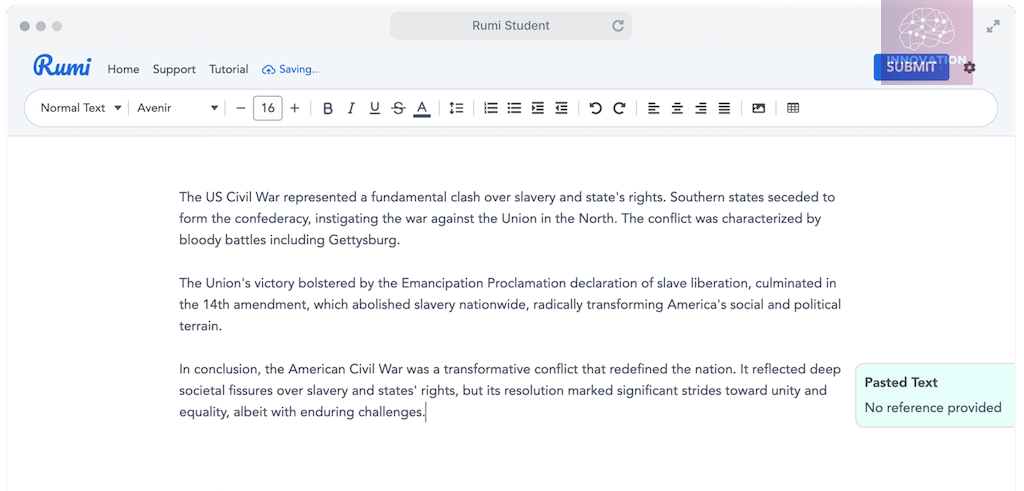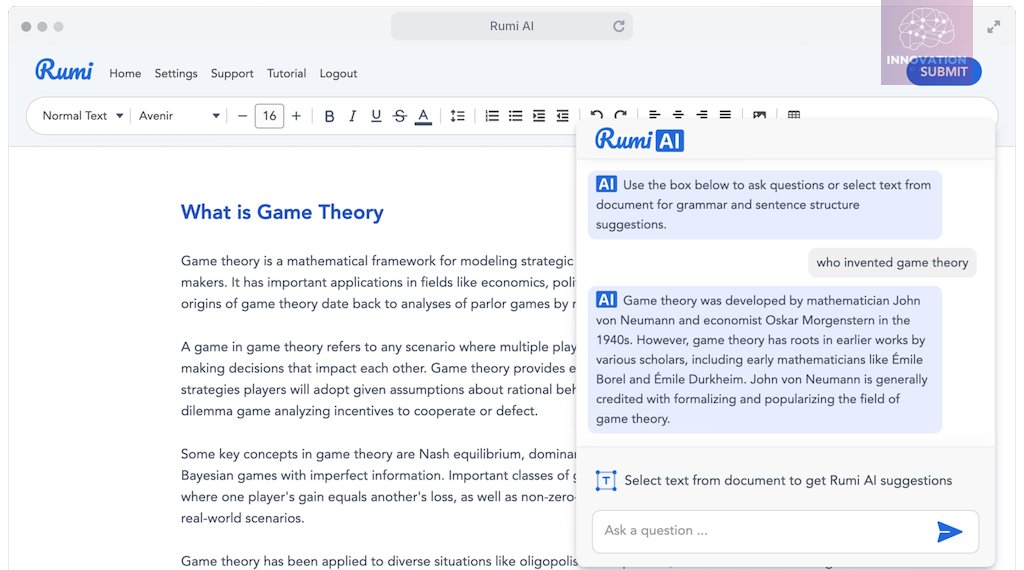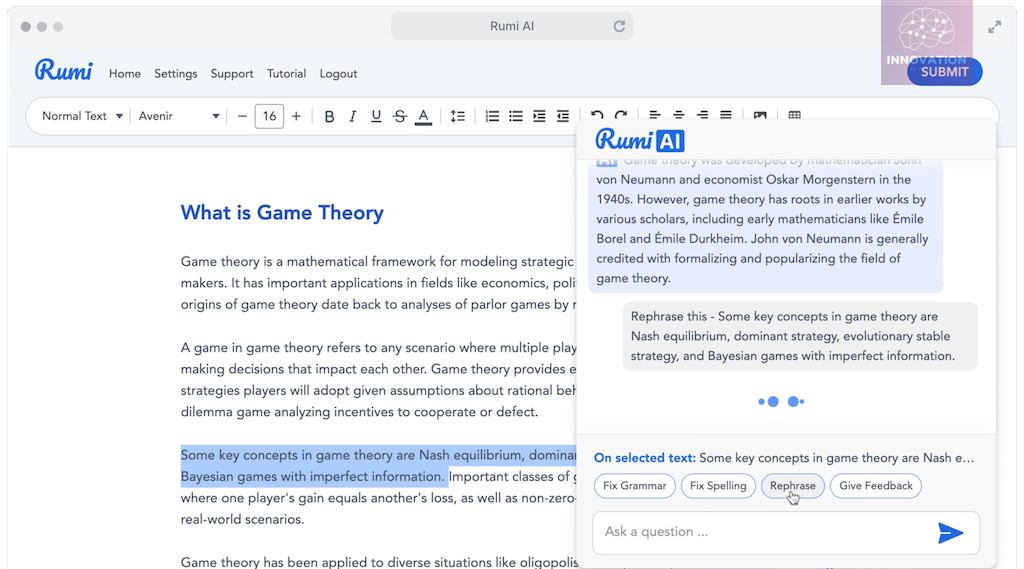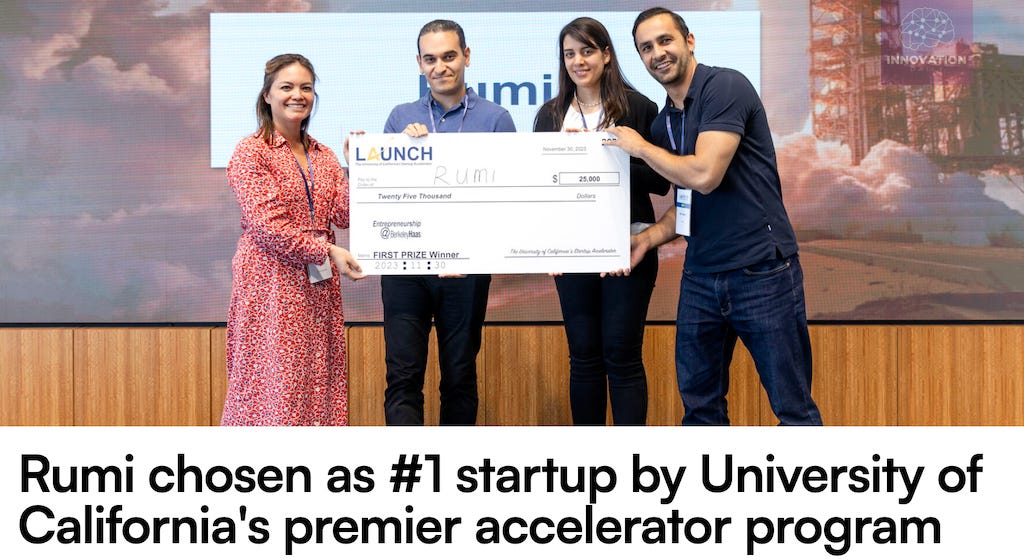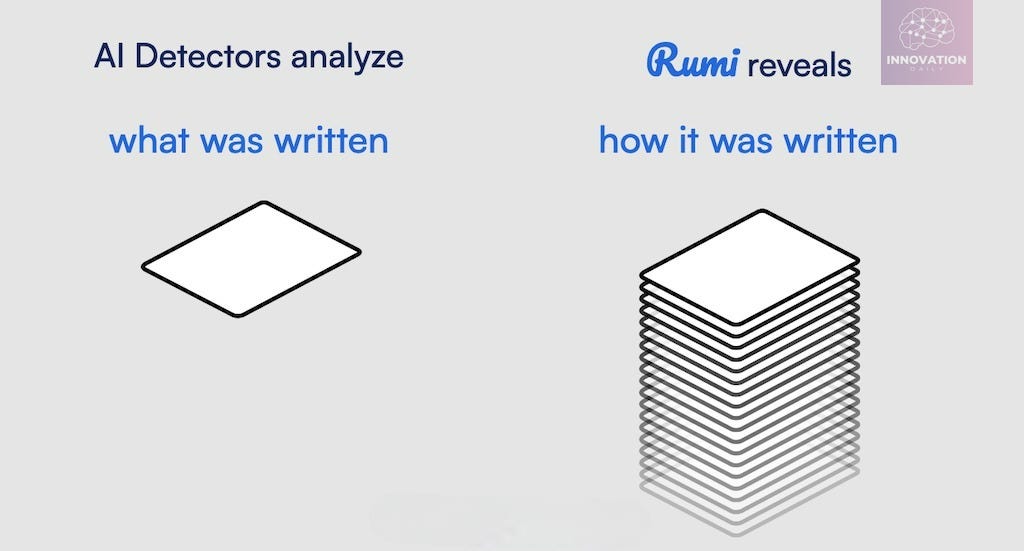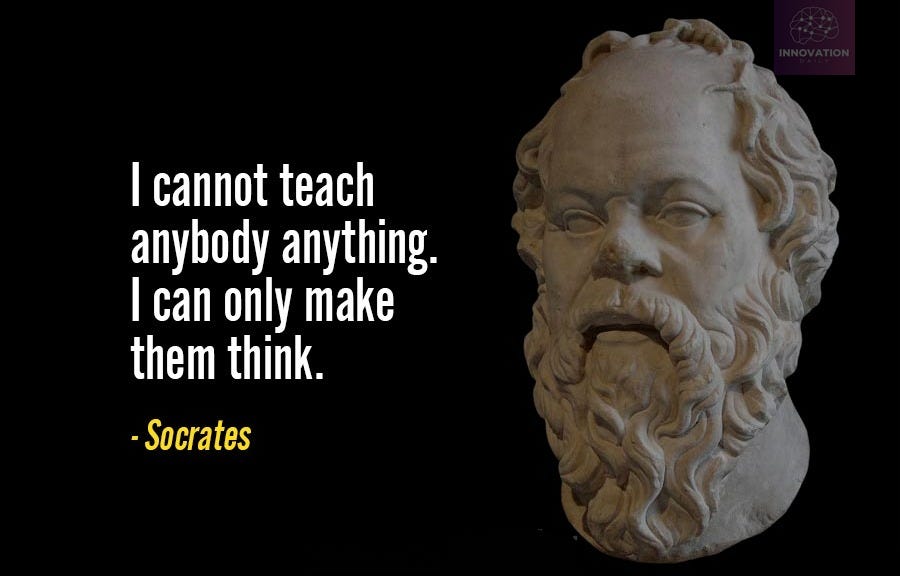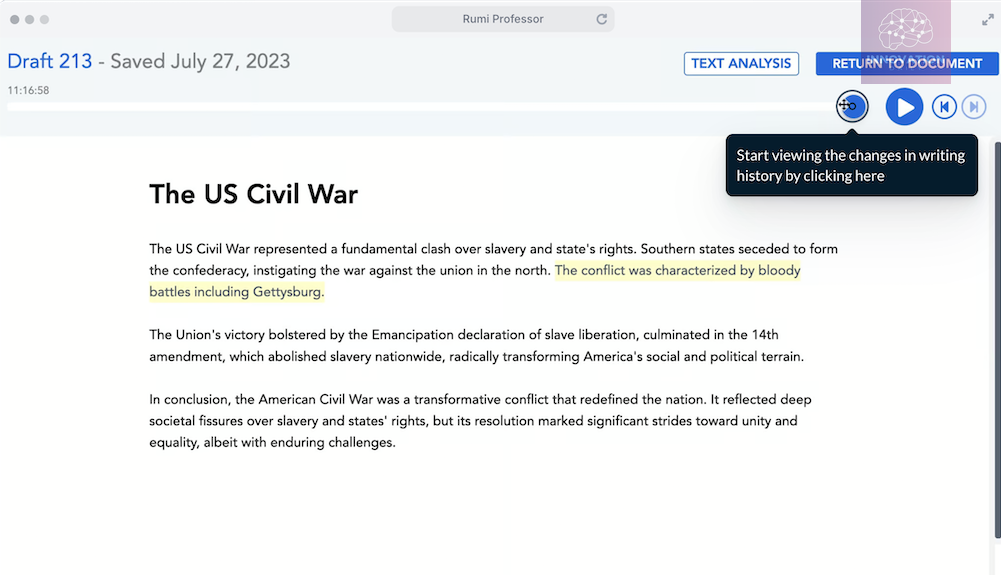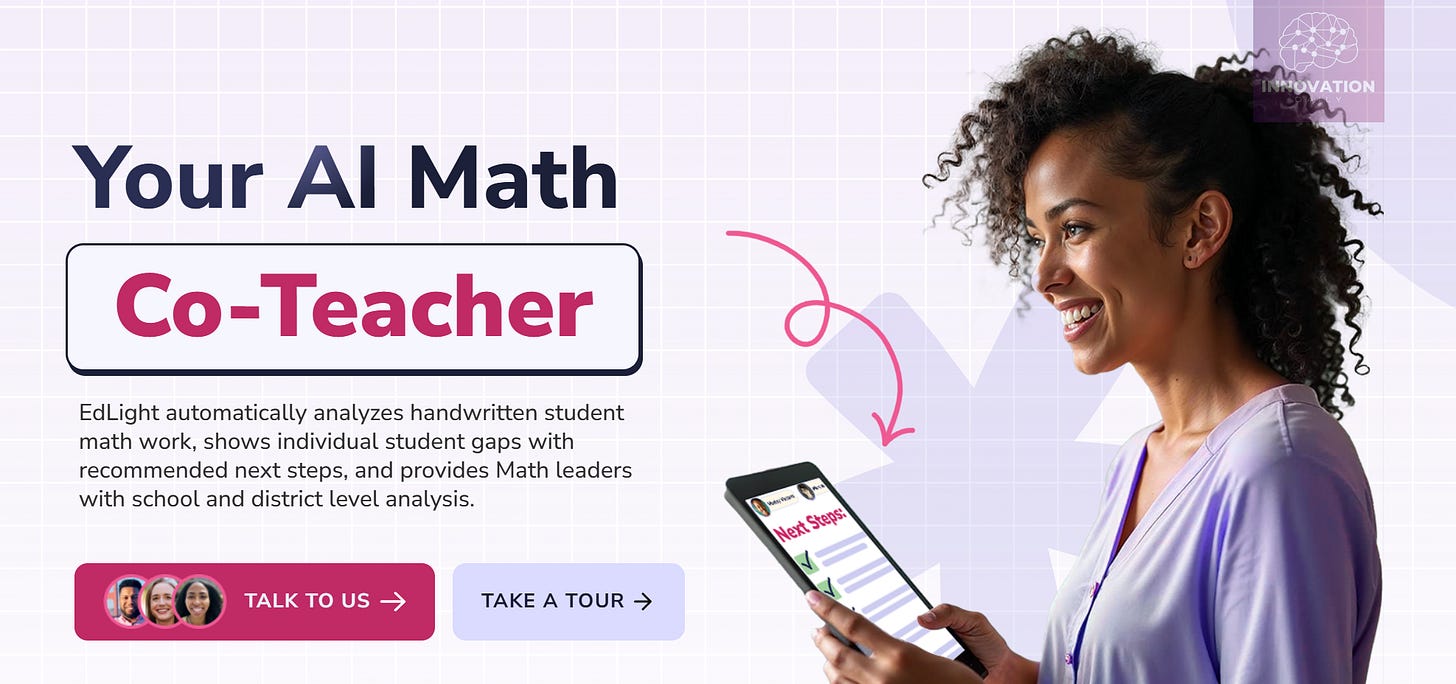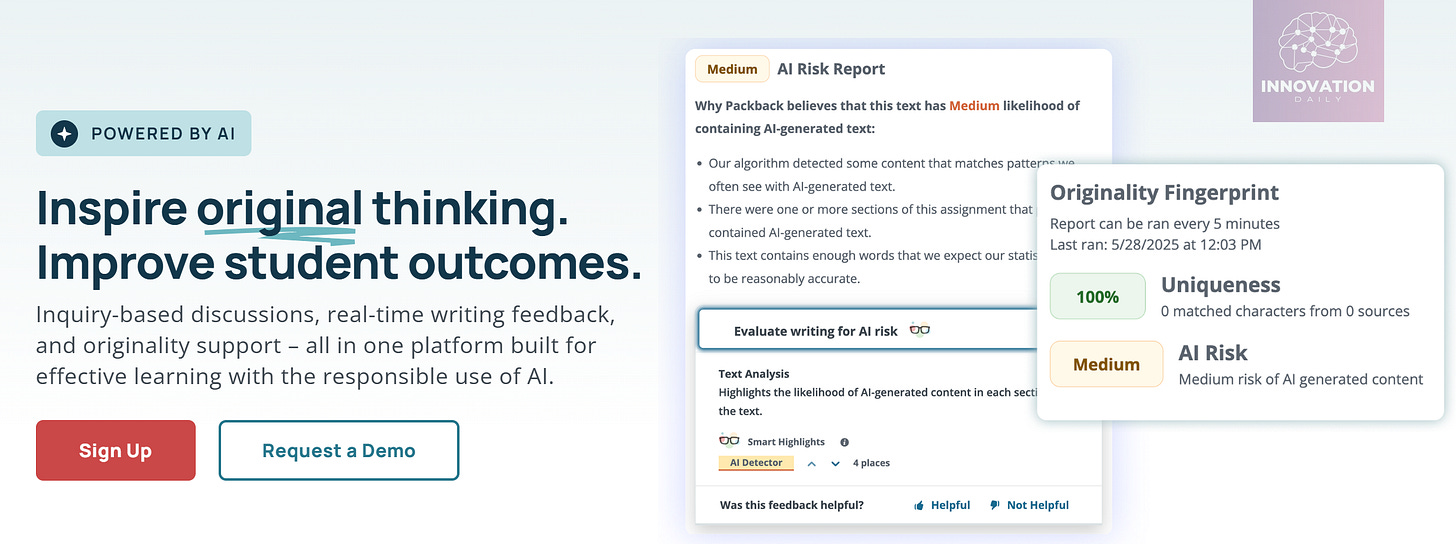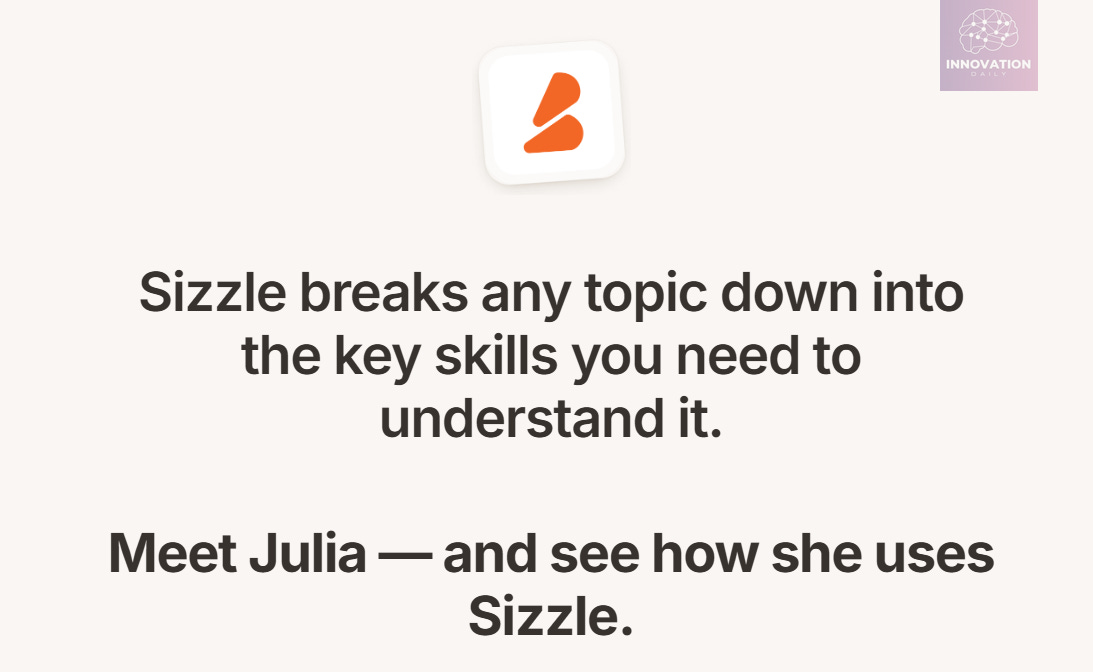Thinking in Progress
Today’s featured startup is building a future where AI is part of learning — not a shortcut around it.
Project Overview
Rumi is a writing platform designed for the age of AI — where students often rely on tools like ChatGPT to complete assignments, and teachers struggle to tell who actually did the work.
Instead of banning AI, Rumi embraces it. The platform lets students write essays, reports, and reflections with the help of an integrated AI assistant — but every step of the writing process is recorded. Teachers don’t just see the final result; they can trace how the text was built, edited, and refined.
If a student pastes in AI-generated content without proper citation, it’s automatically flagged. Every prompt, question, and paraphrasing request sent to the AI is logged and shown to the teacher, so they can understand what the student struggled with — and how they used AI to overcome those challenges.
Rumi turns AI from a black box into a transparent, collaborative tool. It helps teachers assess not just what was written, but how it was written — and how the student thought through the process.
What’s the Gist?
Since ChatGPT and other large language models went mainstream, students have been using them to write everything from essays to book reports. Teachers, in turn, started using AI detectors — often unreliable — to guess whether an assignment was written by a human or a bot.
Rumi takes a completely different approach. Its founders argue that using AI for schoolwork is no different from using a calculator for math — and they’ve built a platform where students can write with AI transparently.
At the heart of Rumi is a document editor that logs the entire writing process. If a student pastes text copied from ChatGPT (or anywhere else) into the editor without citing the source, that section is flagged — and the flag is shown to both the student and the teacher.
Rumi also includes a built-in AI assistant that can answer student questions and paraphrase text — much like ChatGPT, but fully integrated into the editor. And here’s the twist: every AI interaction is logged and shared with the teacher, alongside the final text. This helps teachers see:
what the student struggled with,
how they used the AI to solve problems,
and whether they used the tool responsibly.
Teachers can set limits for AI usage on each assignment:
No AI allowed
AI allowed only for grammar and paraphrasing
Full access
Once the student submits their work, Rumi automatically generates a short summary of the writing process: how long the student spent, how many drafts they wrote, how much was copied from external sources, etc. That gives teachers a clear starting point for evaluating the submission.
On top of that, teachers can leave comments on specific sections and even scroll through the entire history of the writing process — seeing how each paragraph evolved over time.
The price? $2–3 per student per month, depending on the subscription plan. School- and district-level pricing is available on request.
Rumi is still early-stage. It launched last year and took first place at the UC accelerator in November. It has raised a modest $300K to date — but the idea is big.
Key Takeaways
Rumi flips the script on AI in education. Most AI-powered platforms focus on evaluating what was written. Rumi helps teachers understand how it was written.
It’s a return to the core goal of education: not just getting the right answer, but learning how to think. As Socrates said, “I cannot teach anybody anything. I can only make them think.”
Just like calculators freed up class time to focus on problem-solving — not just arithmetic — AI can help teachers focus on how students arrive at ideas. But only if they can see what’s happening behind the scenes.
And Rumi makes that visible.
Rumi joins a growing trend of startups rethinking how learning works in the AI era:
EdLight helps teachers give feedback on students’ thought process by letting them submit handwritten math steps — and has raised $7.25M.
Packback equips students with AI tools for writing and teachers with AI tools for grading — and raised $1.5M.
Sizzle, which we covered last summer, gives students real-time AI hints and questions as they do homework — and raised $7.5M.
Rumi is part of a broader wave: building tools not to restrict AI in education, but to rethink education with AI in mind.
And that opens the door to an entirely new category of billion-dollar companies.
Company Info
Rumi
Website: rumidocs.com
Last funding round: $300K, 13.05.2024
Total funds raised: $300K across 1 round




